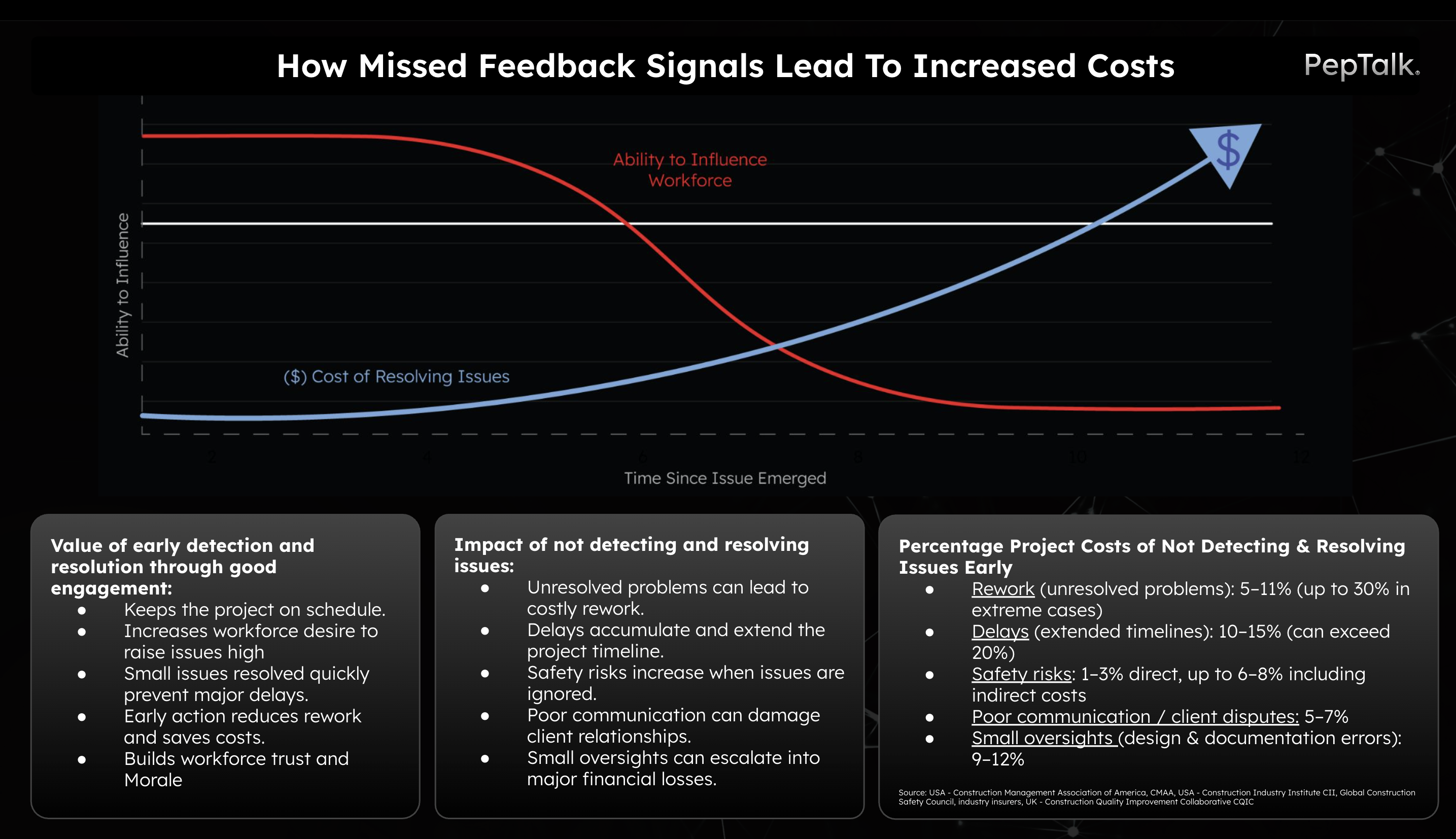
The Hidden Cost of Silence on Site

Silence on a project site is rarely neutral. It’s expensive.
When workers raise issues but the signals aren’t captured, small problems turn into major costs. Missed feedback doesn’t just erode trust it drains budgets and pushes projects off schedule.
What feedback signals really mean
Feedback signals are the everyday insights, observations, or concerns that surface at ground level. They’re the early warnings that something isn’t right. Before it shows up in KPIs like rework rates or incident reports, it shows up as:
- A damaged cord spotted but not reported
- A misalignment between teams mentioned informally but never recorded
- A concern about sequencing that gets lost in the noise of a busy day
Each one of these is a signal. When captured and acted on quickly, they’re cheap to fix. When missed, they become costly delays.

The economic cost of ignoring feedback
The data is clear:
- $3,400-10,000 cost in lost productivity per disengaged employee
- In 2022, only 23% of the world's employees were engaged at work
- $530,000 cost annually in downtime just for clarifying miscommunications (100 person business)
On a project site, those numbers aren’t abstract. They show up as extended timelines, rework, and turnover. A two-day fix left unresolved can become a two-month delay.
Silence compounds costs
The dynamic is simple…
- Early stage: influence is high, cost of resolution is low.
- As time passes: influence drops, cost climbs exponentially.
- End stage: issues are no longer relevant or solvable, but the memory of inaction lingers, damaging trust and morale.
This is why silence is so costly. Not just in money, but in momentum.
Turning silence into savings
Projects don’t need another dashboard. They need a system that captures signals before they’re missed.
That means:
- Capture feedback in real time: kiosks, QR codes, short check-ins.
- Act fast and visibly: small fixes now are cheaper than rework later.
- Close the loop: let people know what was done with their input.
The hidden economics of silence is a story of delay, cost, and disengagement. The fix is to make feedback part of the project’s operating rhythm—not an afterthought.
See how PepTalk can help your project team today
See PepTalk in action
Schedule a demo with our experts.
See how PepTalk transforms project sites







.jpg)
.png)

.png)